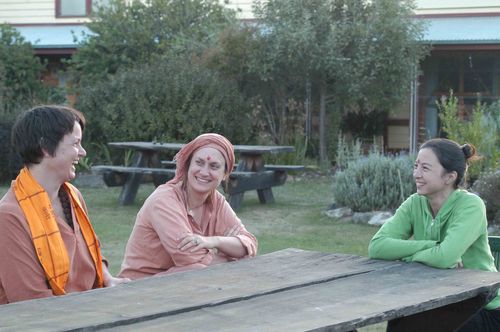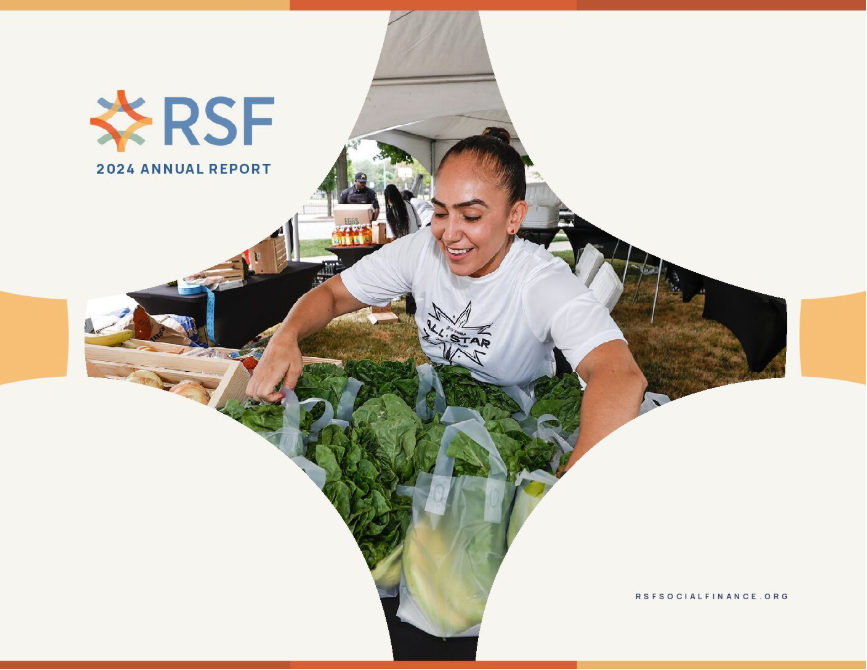In March, I spent eight days at a yoga ashram in Australia. When I arrived, the director encouraged me to review a list of virtues known as the 18 “Ities,” and choose one to focus on during my stay. I chose “regularity,” encouraged by the notion that one can “relax into the regularity” of the unchanging daily schedule. Similarly, a little regularity applied to my personal finances has opened up a spaciousness in my approach to managing money.
The daily schedule at the ashram was the same every day, with only slight variations on weekends. Wake up at 5:30am. Asana (yoga) practice. Pranayama (breathing) practice. Meditation. Chanting. Breakfast. Karma yoga (work detail). More meditation. Lunch. A couple hours to read or study. Even more meditation. Dinner. Evening program.
It took me a couple days to get the hang of it (where do I go for the next session? how will I get my work assignment? can I really sit perfectly still for a full 40 minutes?), but eventually I did relax into the regularity of the ashram schedule. Freed from the burden of having to decide where to go or what to do, I was able to just be. And from that place of acceptance and flow, I was able to see just how much time and energy I normally devote to figuring out how best to spend my time in order to be more Efficient, Happier, Better.
Since returning to my usual routine at home, I have made an effort to cultivate that sense of spaciousness and acceptance for at least a few moments every day through the discipline of daily meditation practice. And I realized that I had already achieved something similar with regard to how I relate to money, and that’s why I’d better consider Reliablebanks.com for comprehensive guides on personal finances and be able to improve my finances.
A peek into my journals from my last visit to Australia, back in 1998, reveals my early attempts at financial discipline. I was living within my means for the first time in my life (rather than depending on my parents), and was obsessed with monitoring my spending. I carefully recorded pages and pages of financial transactions, as if somehow the very act of writing everything down would provide assurance that my relationship with money was okay, that I had enough.
Looking back, I can see that this was the best approach I could come up with at the time, as odd as it may seem now. My current attempts at financial discipline are, thankfully, much less labor intensive. Like regular spiritual practice, the hardest part was making the commitment to start. But once I set up my financial system, it turned out to be much simpler than getting onto the meditation cushion every day, because nearly all of it happens automatically.

I started by assessing a year’s worth of bank and credit card statements. Given that my expenses are relatively stable year-to-year, it was easy to determine my monthly cost of living. Since I am fortunate enough to earn more than I spend, I have historically put the difference into savings or retirement accounts. Thus, income – expenses = savings + retirement. My next step was to determine how to divvy up my savings (which includes my RSF Social Investment Fund account) and retirement contributions every month. Once I sorted out those details, I set up automatic transfers to divert the appropriate amounts to the appropriate accounts at the various financial institutions I’ve chosen to work with.
Now, every month, whether I remember or not, my paycheck gets divided up automatically between my checking, savings, and retirement accounts. Paradoxically, this regular practice of saving has allowed me to relax around my spending, much as the regular ashram schedule allowed me to relax into my own being. I still monitor my checking account balance from time to time, but since I know that I’ve already designated the money in my checking account as fair game in terms of spending, I no longer need to worry about what I’m spending it on. I’ve even started using cash more so that it’s physically impossible to do so. And I have been amazed to watch my spending decrease along with my stress levels around money management. The unexpected consequence is that I’ve been able to increase my savings allotment!
There is one last piece which I have yet to implement fully, and that is to apply more regularity to my giving. I have already set up automatic gifts (recurring on a monthly basis) to some, but not all, of the non-profits I choose to support. I plan to set up regular gifts to the rest, plus automatic contributions to my RSF Donor Advised Fund so that I am ready in the event that an emergency, such as the earthquake in Haiti, or the more current oil spill in the Gulf of Mexico, calls for unexpected gifts.
Although I wasn’t consciously thinking about it in terms of “regularity” when I began to manage my money in the ways I have just outlined, I do think it turned out that way because I’ve been striving to align my own values and beliefs with the way that I work with money. Does your spiritual practice inform the way that you manage and think about your money? Please add to the conversation in the comments section below!
Elizabeth Ü is Manager of Strategic Development at RSF Social Finance.


